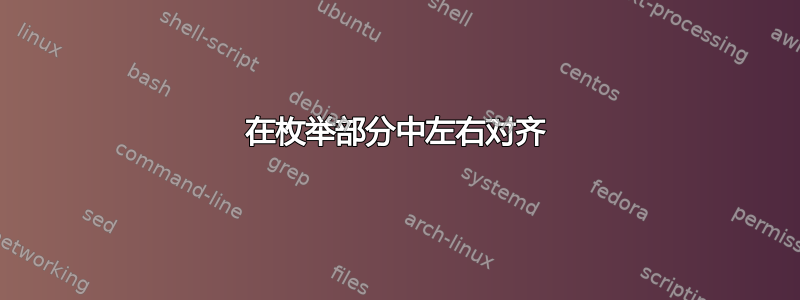

我是新手,对乳胶了解不多。我不想对齐等号,但我想左对齐等式,右对齐描述。提前致谢。
答案1
将其设置为tabular环境可能是最简单的。
通过加载array包,可以直接将第二列设置为数学模式,将第三列设置为斜体,将第四列中的单词设置为括号。执行此设置可以节省大量在环境主体中输入的内容tabular。

\documentclass{article}
\usepackage{array}
\begin{document}
\begin{center}
\renewcommand{\arraystretch}{1.5}
\begin{tabular}{l >{$}l<{$} >{\itshape}l >{[}l<{]}}
(a) & P+\mathcal{O}=\mathcal{O}+P=P & for all $P\in E$. & Identity \\
(b) & P+(-P)=\mathcal{O} & for all $P\in E$. & Inverse \\
(c) & (P+Q)+R=P+(Q+R) & for all $P,Q,R\in E$. & Associative\\
(d) & P+Q=Q+P & for all $P,Q\in E$. & Commutative \\
\end{tabular}
\end{center}
\end{document}
答案2
直截了当align*(来自amsmath)可以管理此布局:

\documentclass{article}
\usepackage{lipsum}% Just for this example
\usepackage{amsmath}
\begin{document}
\lipsum*[1]% Just for this example
\begin{align*}
\text{(a)} && P + \mathcal{O} &= \mathcal{O} + P = P && \textit{for all $P \in E$.} && \text{[Identity]} \\
\text{(b)} && P + (-P) &= \mathcal{O} && \textit{for all $P \in E$.} && \text{[Inverse]} \\
\text{(c)} && (P + Q) + R &= P + (Q + R) && \textit{for all $P,Q,R \in E$.} && \text{[Associative]} \\
\text{(d)} && P + Q &= Q + P && \textit{for all $P,Q \in E$.} && \text{[Commutative]}
\end{align*}
\lipsum[2]% Just for this example
\end{document}
&如果您“不想对齐方程式”,可以添加其他对齐组件。不过我认为这没什么用:

\documentclass{article}
\usepackage{lipsum}% Just for this example
\usepackage{amsmath}
\begin{document}
\lipsum*[1]% Just for this example
\begin{align*}
\text{(a)} &&& P + \mathcal{O} = \mathcal{O} + P = P && \textit{for all $P \in E$.} && \text{[Identity]} \\
\text{(b)} &&& P + (-P) = \mathcal{O} && \textit{for all $P \in E$.} && \text{[Inverse]} \\
\text{(c)} &&& (P + Q) + R = P + (Q + R) && \textit{for all $P,Q,R \in E$.} && \text{[Associative]} \\
\text{(d)} &&& P + Q = Q + P && \textit{for all $P,Q \in E$.} && \text{[Commutative]}
\end{align*}
\lipsum[2]% Just for this example
\end{document}


